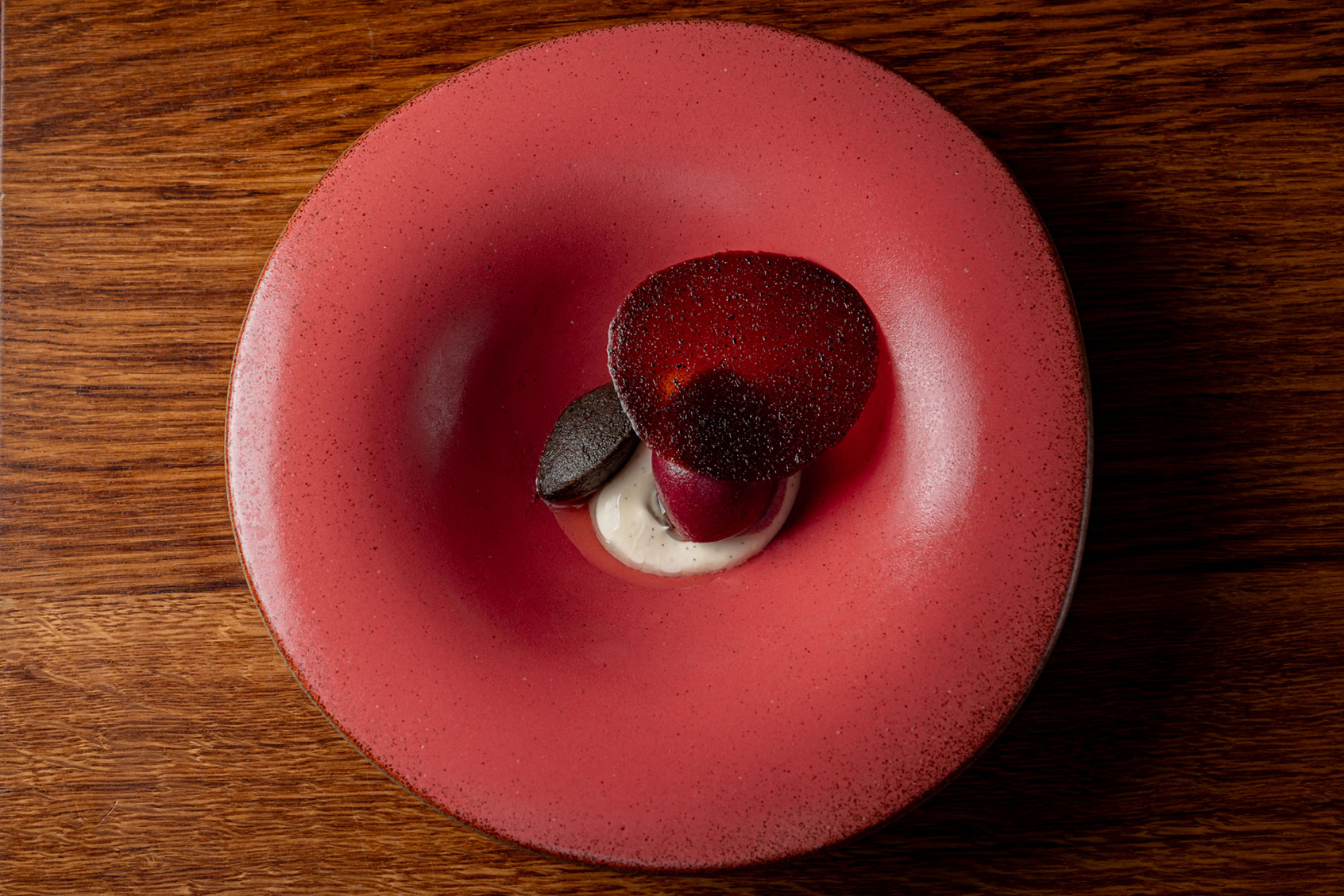In May 2023, while reviewing an episode of “Top Chef: World All Stars,” I was introduced to a chef I hadn’t encountered before: guest judge Jeremy Chan.
In the review, I wrote: "Chef Jeremy Chan is a highlight of this episode; his measured demeanor, calming voice, and knowledgeable approach are unique and refreshing."
Chan embodies the phrase “calm, cool, and collected.” An accomplished chef, he is the co-founder and head chef of Ikoyi, a two-Michelin-starred restaurant in London, which he launched in 2017 with his childhood friend Iré Hassan-Odukale. Chan is also the author of a cookbook by the same name.
As explained on the Ikoyi website, the restaurant's ethos centers on “its own spice-based cuisine around British micro-seasonality: vegetables slowly grown for flavor, sustainable line-caught fish, and aged native beef . . . The foundation for our menu is a vast collection of spices with a focus on sub-Saharan West Africa, which we have sourced with utmost care since opening."
Chan’s own style is cerebral and meticulous, with a philosophical and holistic approach to food, dining, and gastronomy as a whole — which is derived, at least in part, from the chef's educational background. Prior to cooking professionally, Chan studied philosophy and the theory of languages at Princeton University, and through his culinary career has identified points where academia and food intersect, including through a collaboration with the Umami Information Center in Tokyo.
Salon recently had the opportunity to connect with Chan for a candid discussion about the standout dishes at his restaurant, the influences that shaped his career and menus, earning Michelin stars, and his succinct advice on sustainability and reducing food waste.
The following interview has been lightly edited for clarity and length.
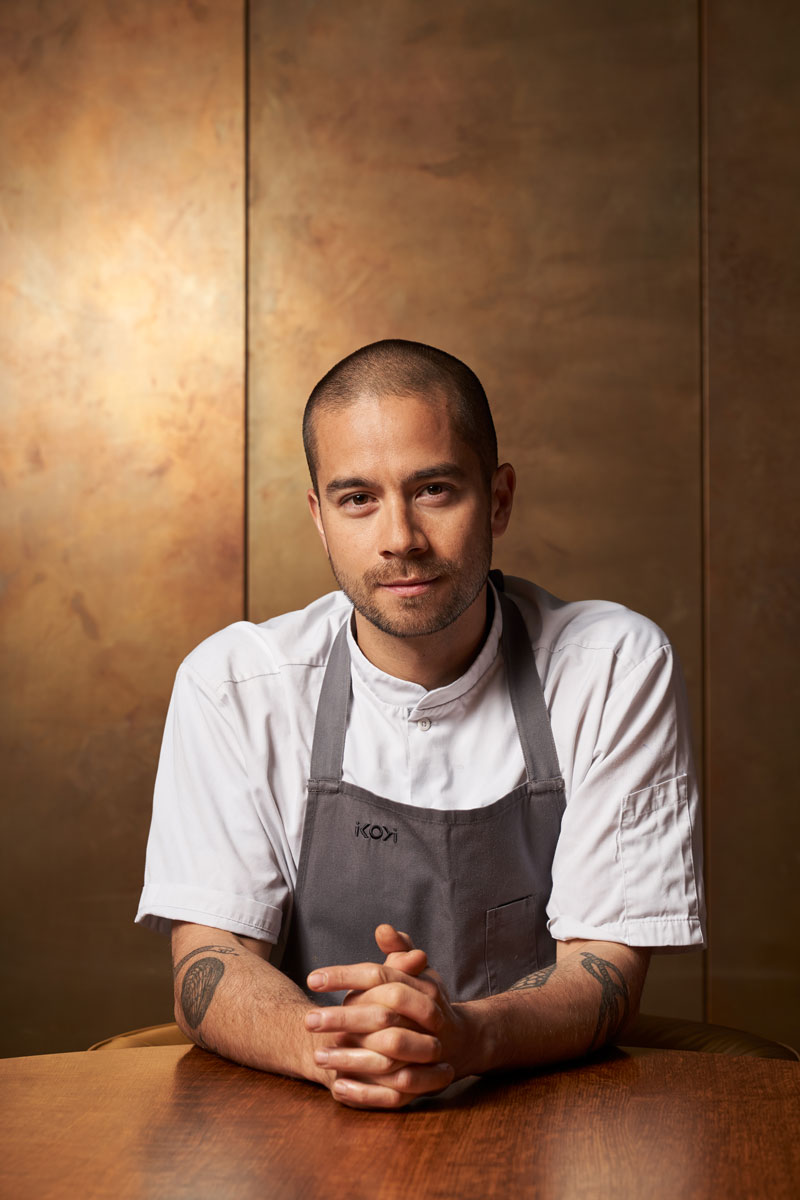 Chef Jeremy Chan (Danny J Peace)
Chef Jeremy Chan (Danny J Peace)
How would you say your cultural influences, your identity and the places in which you've resided and worked over the years have influenced your cooking?
The cooking at Ikoyi is very intuitive, emotional, artistic and personal. It's done very much on feeling and the kind of technique and logic of cooking applied to feeling and intuition. It's not put through the lens of memory and culture as much. I think those things are part of it, but they are inflected naturally. My entire life and experiences shape my cooking, but this influence is more subconscious. I cook with a sense of intuition, passion and style and that's the foundation of the restaurant we've created.
Everything that we do now is very Ikoyi. There is a certain pattern and style that we live in. We’ve created our own creative world with its own rules and structures where we develop our dishes. In terms of culture and life, this influences all of our intuitions. It would take too long to list every place, memory, thought and idea I draw from, but I incorporate all of them.
Want more great food writing and recipes? Subscribe to Salon Food's newsletter, The Bite.
Would you say your collegiate background plays into your cooking ethos?
My approach to planning a restaurant and creating recipes is similar to structuring a thesis or an essay. I think recipes function like arguments and I like this skill. My university experience involved a lot of constructing arguments and developing a thesis, which has helped me in the kitchen. I find that having a clear perspective and using language effectively to convey it is very similar to the process of cooking. So, this approach is extremely helpful in building a restaurant.
What sort of link do you think there is between philosophy and culinary arts?
The link between philosophy and culinary arts centers on whether cooking requires a philosophical standpoint. There may be a connection if someone has studied philosophy or holds a philosophical viewpoint. However, I don’t believe the two have an immediate or inherent connection. Personally, I wouldn't say that I consciously make a connection. While someone’s thought process might affect how they think about food, as a general idea, I don’t see a strong connection between philosophy and food.
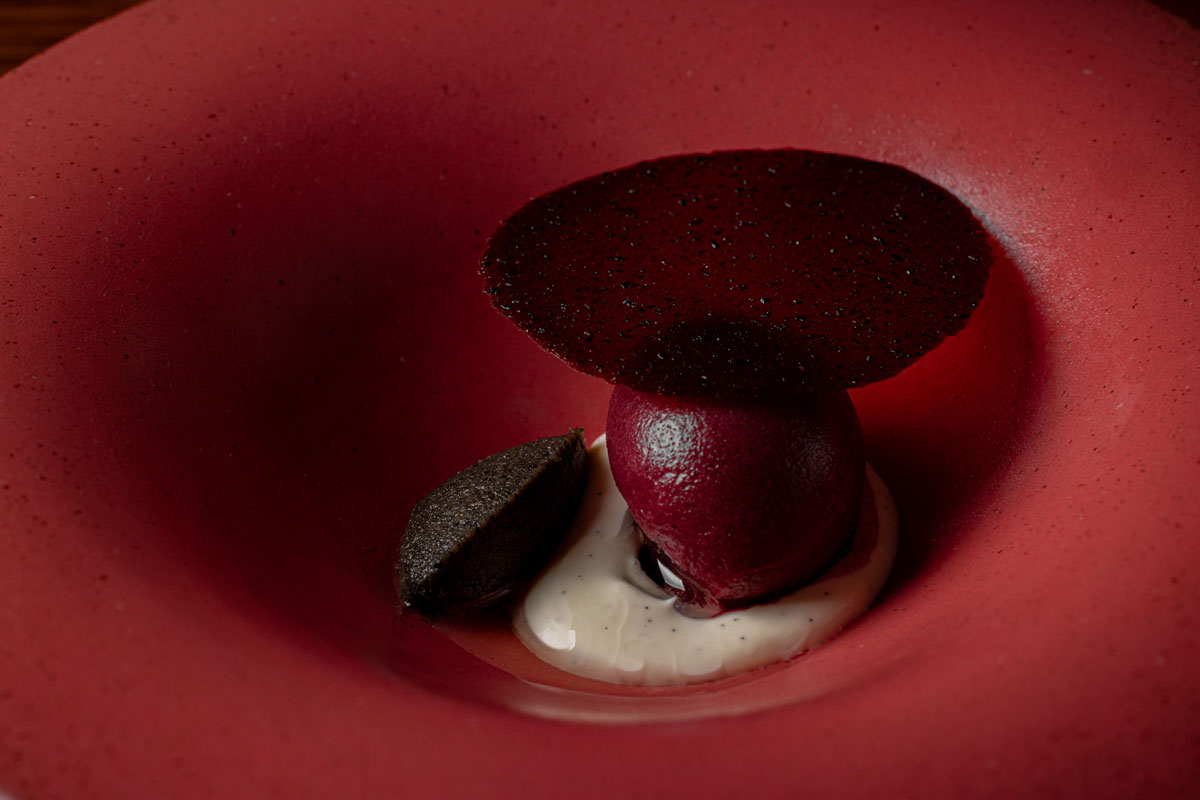 Ikoyi cherry cola sorbet, licorice-scented baba ghanoush, vanilla shiitake cream and caramelized cherry juice (Justin DeSouza)
Ikoyi cherry cola sorbet, licorice-scented baba ghanoush, vanilla shiitake cream and caramelized cherry juice (Justin DeSouza)
Ikoyi highlights seasonal produce along with bold, forward flavors. Is there a particular dish that you think represents the Ikoyi ethos best?
One of the snacks we do is a smoked beef snack with seasonal fish and a poppy seed tart with salted citrus and chilli. There is seasonal vegetables, seasonal fish, seasonal meat and two different types of aging, fish and meat, with citrus-y, bitter, salty, umami, spicy and sour flavors. It has everything I love about food in one bite. And it's bold because it combines all of these very strong flavors in one bite.
Ikoyi has garnered some amazing recognition and accolades — what do you think Ikoyi's future might look like?
I have no idea. I'm still trying to figure that out. I really am trying to figure that out every day.
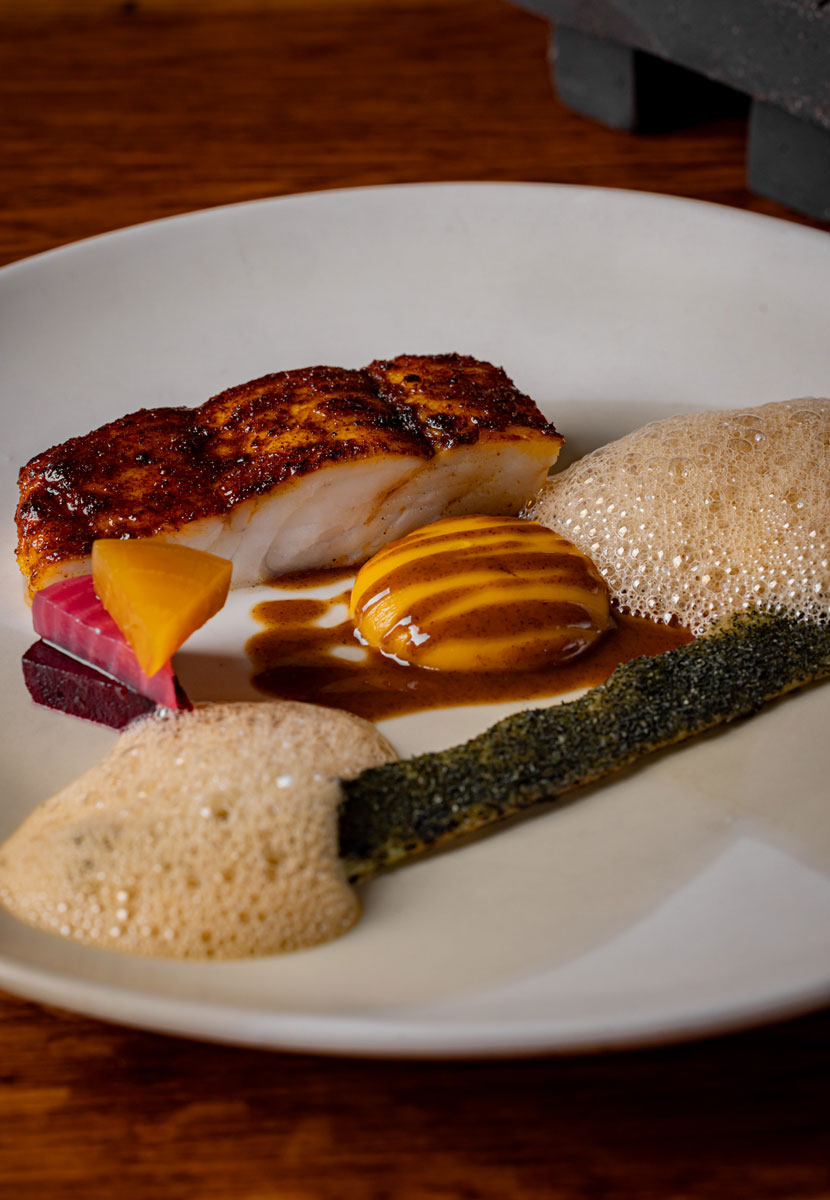 Ikoyi Turbot & Egusi Miso (Justin DeSouza)
Ikoyi Turbot & Egusi Miso (Justin DeSouza)
I'd love to hear about your experience judging on "Top Chef" last year?
It was a unique insight into the operation of American television series. The contestants were of a high level and the location we visited was amazing. It was my first time doing TV in an English-language show, as I have only judged in Italian before. This made me feel less comfortable and less natural. When judging in Italian, I felt I could conceal some aspects of my identity, as it’s not my native language.
However, speaking in English exposed my thoughts more directly, making me feel a bit vulnerable while judging the US "Top Chef." If I were to do it again, I would be more confident in providing my feedback.
Was there a particular moment you recall that sort of signified or crystallized your departure or transition from academia and legitimately pursuing cooking and the restaurant industry?
I just had a realization: I was excited by the adventure of trying something new and had a lot of self-belief. During that time, I read countless books and was truly passionate. I felt confident I could achieve anything—I was determined to become a great chef. I just knew it would happen. However, once I started my journey, that confidence changed because I quickly realized how challenging it actually was.
Do you have a number-one favorite ingredient to work with?
I really enjoy shellfish, especially scallops, lobster and langoustine. The shellfish from the UK is stunning. I know that’s a generic answer, but I am genuinely inspired by the quality of shellfish available here, which I think is among the best in the world. This is one of the reasons I love living in the UK.
Is there a standout menu item for you? Or one that particularly resonates with customers?
The caramelized sweetbreads are probably one of the best that guests will ever taste in their lives. There are definitely a few dishes we serve in the restaurant that are the best versions of those specific items anywhere in the world, such as the beef, scallops, sweetbreads and lobster. Also, some of the vegetables we prepare are exceptional. At Ikoyi, we have an impressive array of individual ingredients that have a strong identity, texture and character.
What stands out for you as a formative moment that got you into cooking or food at large?
I wrote about this in my book, an experience of eating hot pot with my old college friend and his family. The meal was incredibly spicy and I was amazed at how it affected my body. It felt almost paralyzing. I remember eating so quickly and feverishly, overwhelmed by the heat and numbness, that I had to step outside and nearly passed out.
I truly love that style of food — it's the kind of cuisine that transforms your physical state. This experience inspired my appreciation for spices; I believe they can change your physicality. Spices create strong, distinct sensations in your mouth, eliciting intense and vivid feelings.
What is your favorite cooking memory?
In 2021 or 2022, I had the opportunity to cook dinner in a hotel at the top of the Swiss Alps. I vividly remember making walnut ice cream in the middle of the night, as I had an event the following day and I had the whole kitchen to myself. The kitchen was beautiful and modern, with large windows that offered stunning views of the Alps. I could see the little town below at night and I was surrounded by high-speed winds and swirling snow.
What’s your biggest tip for cutting down on food waste?
Just eat it all.
How do you practice sustainability in your cooking and in your restaurants?
Just cook and eat all the edible parts of the food. That's it. Simple cooking. Everything is edible.
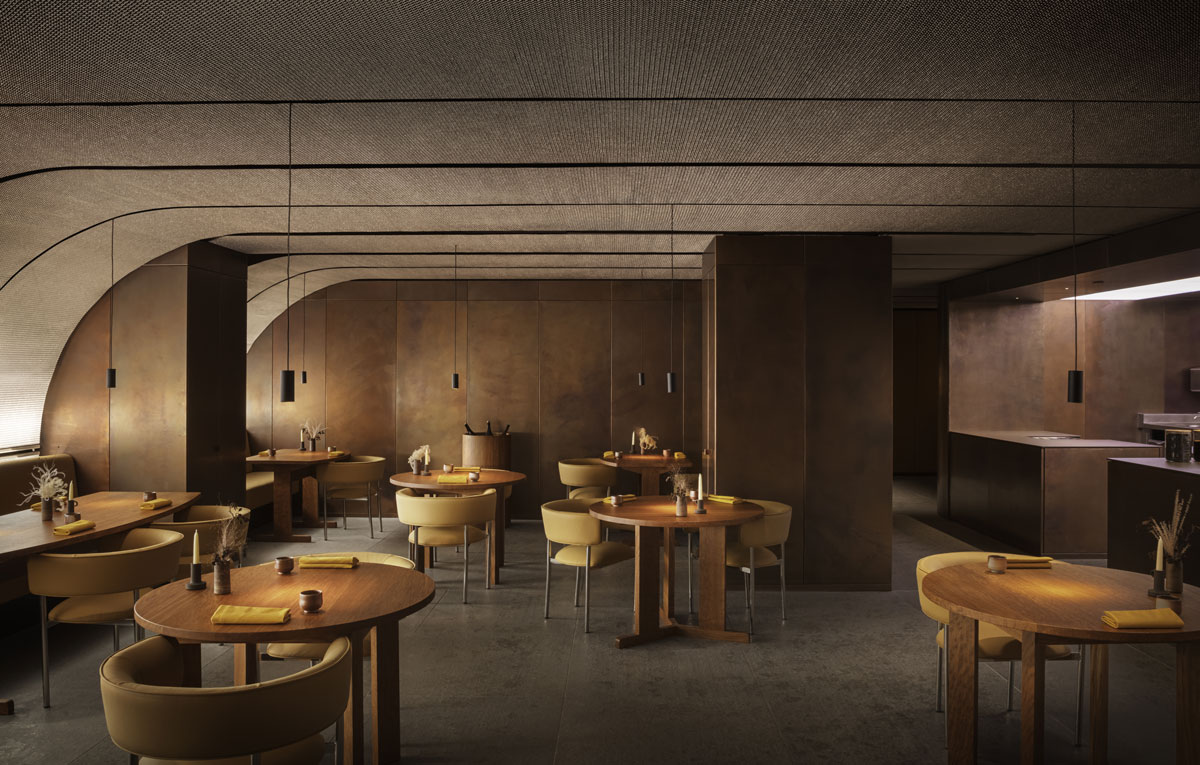 Ikoyi dining room (Irina Boersma)
Ikoyi dining room (Irina Boersma)
The Ikoyi cookbook is stunning. Would you be able to pinpoint your favorite recipe in it?
I love a dish with morels, calf brains and cassava terrine. It's a really unique creation. I actually wrote that recipe seven years ago and it feels very much like an Ikoyi dish while also being very London. I was inspired by St. John and its nose-to-tail cooking philosophy. Combining morels with Nigerian spices, cassava and calf brains allowed me to create something comforting yet distinctly British.
What was the development process of the cookbook like?
I spent a total of about eight days working on a book. Initially, I sat in a room for three and a half months to write a plan and then the book itself. After that, the photography took eight days: five days in the restaurant and three days dedicated to visiting farms. Overall, the writing and photography process was relatively quick, but the production and editing took a bit longer.
We need your help to stay independent
Could you tell me a bit about the Manresa pop-up you recently partook in?
The Manresa pop-up was a great opportunity for us to explore California’s produce and create a pop-up restaurant in an iconic location. David Kinch is very cool. I read his book many years ago and never imagined I would be working in his kitchen for a month. It was a great experience.
This pop-up allowed my team and me to step away from our usual environment, discover new ingredients and taste different types of fish, meats, vegetables and fruits, comparing them to what we have at home. It was also an opportunity to collaborate with different people, gain inspiration and think about how we can take the essence of Ikoyi and adapt it to other parts of the world while still connecting with people in a meaningful way.
How validating was it when you first learned of Ikoyi's being awarded Michelin stars?
It was great— a blessing because we got busier. It was good for the restaurant, the team, the guests and all our producers and suppliers.
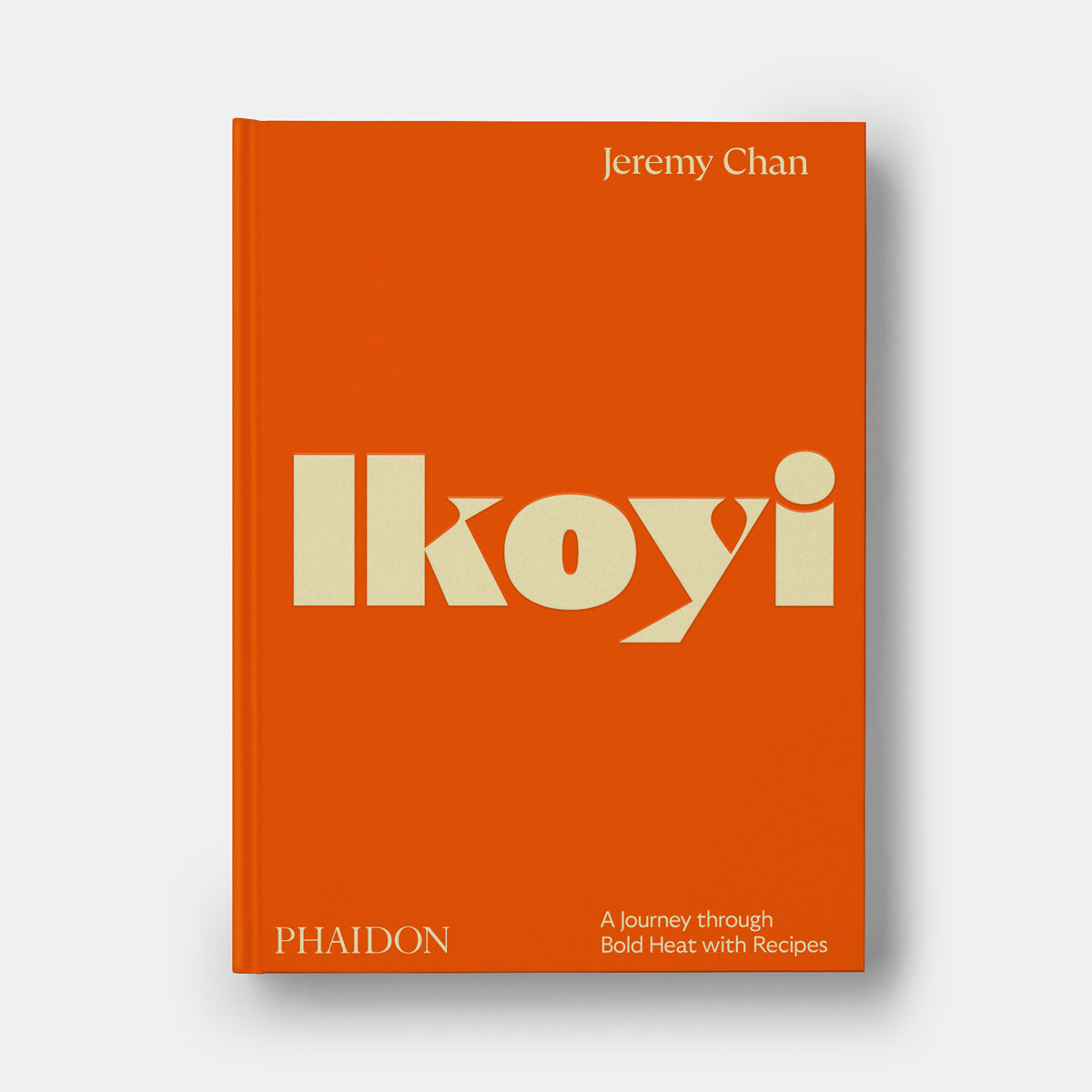 Ikoyi: A Journey Through Bold Heat with Recipes (Courtesy of Phaidon)
Ikoyi: A Journey Through Bold Heat with Recipes (Courtesy of Phaidon)
The cookbook sub-heading is "A journey through bold heat." Would you say that represents your outlook on cooking at large, from the restaurant to cooking at home?
Yes, I would. My cooking at home, for my family, is very much about flavor and taste, comforting, nurturing and delicious flavors.
There's a quote in the cookbook that I wanted to ask about. "In a kitchen, there is nowhere to hide: raw ability and attitude eventually triumph"
It's very much my philosophy. In the kitchen, you have to put yourself out there. The kitchen is about output. It's not really a place where you can go and contemplate and sit in the corner and produce great work. You have to do things and you have to do them quickly. What I'm trying to say is you have to have a good attitude. You have to channel your strengths and abilities constantly and positively to the team's greater good. It's very difficult to hide in the kitchen if you're not involved and connected to what you're doing mentally and emotionally.
